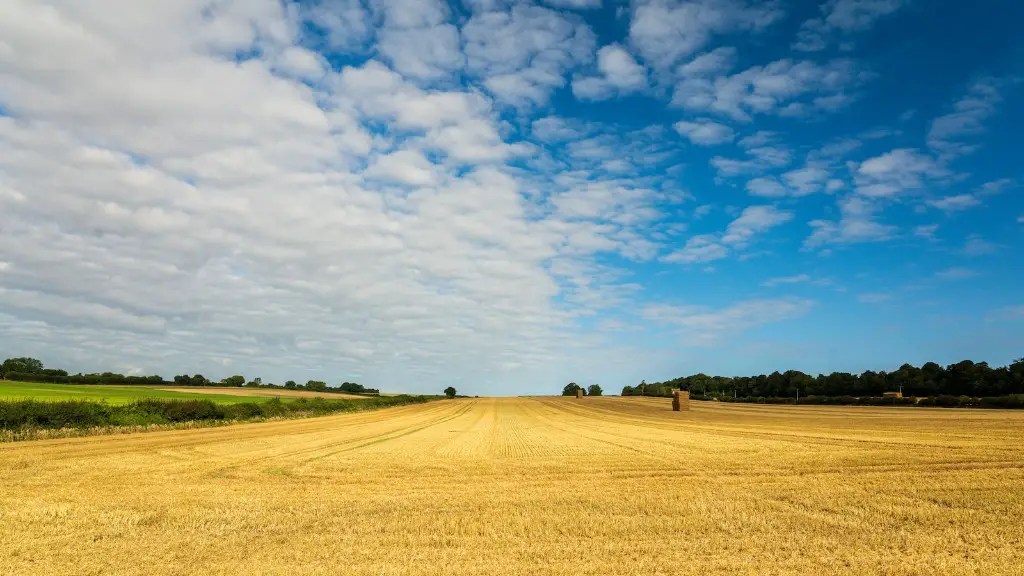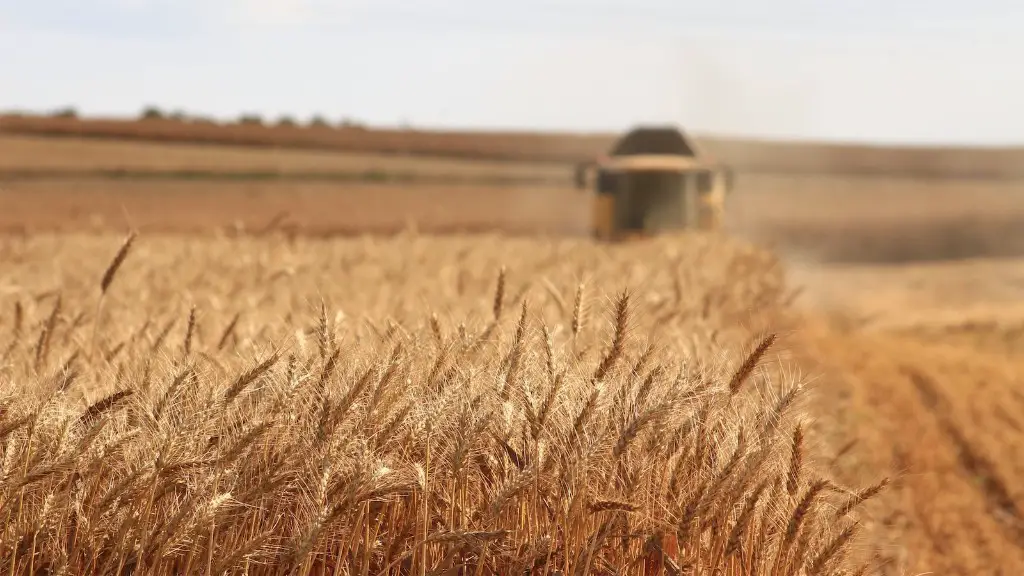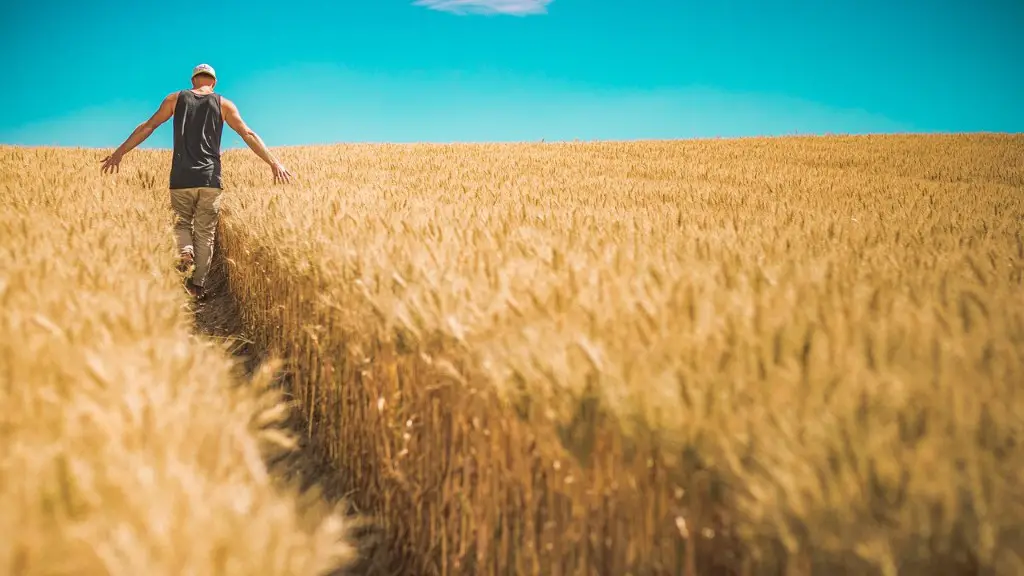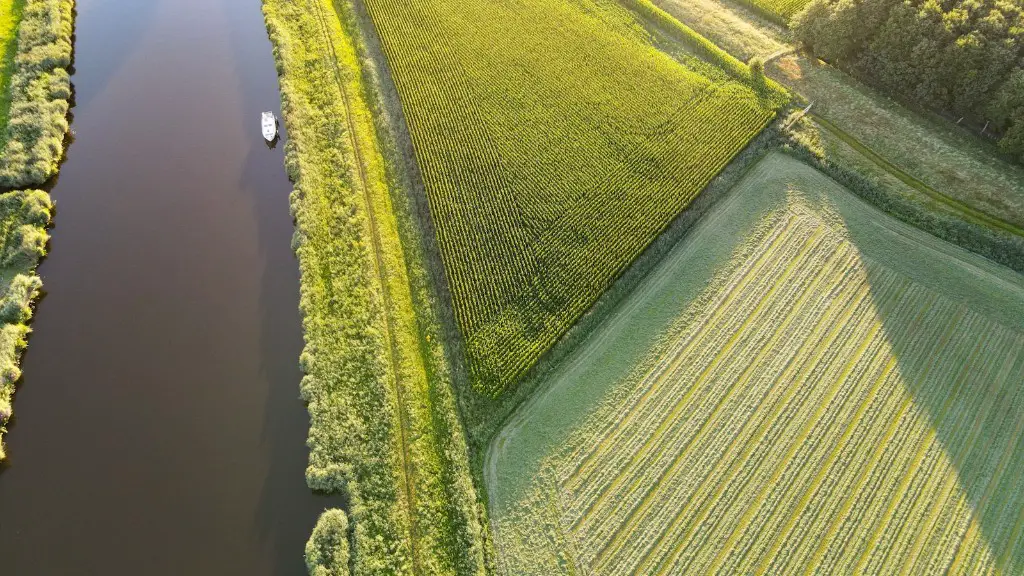The introduction of agriculture affected early peoples by giving them a new way to produce food. Agriculture allowed early peoples to settle in one place, which led to the development of civilizations. Agriculture also allowed early peoples to trade goods, which led to the development of trade routes.
The introduction of agriculture affected early peoples by giving them a new way to sustain themselves and their families. Agriculture allowed early peoples to domesticated plants and animals, which led to a more sedentary lifestyle. Agriculture also allowed for the growth of civilizations and the rise of cities.
How did agriculture affect humans?
In the past 10,000 to 15,000 years, advances in agriculture have allowed the human population to become roughly 1000 times larger. Agriculture has also had environmental impacts, with farmers using complex tools to cultivate and irrigate their fields and to build settlements.
More abundant food supplies could support denser populations, and farming tied people to their land. Small settlements grew into towns, and towns grew into cities. Agriculture produced enough food that people became free to pursue interests other than worrying about what they were going to eat that day. This led to the development of civilizations and the rise of cities.
Why was agriculture so important for the development of early humans
Agriculture has been a key driver of human progress for millennia. It allowed our ancestors to settle in one place, grow their own food, and develop civilizations. Today, farming continues to be a vital part of the global economy, providing jobs for millions of people and food for billions. However, it is also a major source of greenhouse gas emissions, contributing to climate change. As we look to the future, it is essential that we find ways to make agriculture more sustainable.
Agriculture enabled people to produce surplus food. They could use this extra food when crops failed or trade it for other goods. Food surpluses allowed people to work at other tasks unrelated to farming. Agriculture kept formerly nomadic people near their fields and led to the development of permanent villages.
How did the agricultural revolution impact early humans?
The agricultural revolution was a period of time in which humans began to cultivate the land for food. This transition from hunting and gathering to agriculture had a variety of consequences for humans. One of these consequences was the rise of inequality, as those who controlled the land became more powerful than those who did not. This power imbalance led to a decline in nutrition for the majority of people, as well as an increase in diseases contracted from domesticated animals. While the agricultural revolution had many negative consequences, it also allowed for the growth of civilizations and the development of new technologies.
Agriculture has impacted human populations and societies in a number of ways. Firstly, it has allowed for a population increase as it provides a reliable food source. This in turn has led to the establishment of more and more complex societies. Secondly, agriculture has allowed for permanent settlements to be established, as people no longer need to move around in search of food. This has led to the development of cities and civilizations. Lastly, agriculture has had a huge impact on the environment, as the clearing of land for farming has led to the loss of forests and wildlife habitats.
What role did agriculture play in the early American colonies?
In Colonial America, agriculture was the primary livelihood for 90% of the population, and most towns were shipping points for the export of agricultural products. Most farms were geared toward subsistence production for family use. This meant that they produced just enough food to feed themselves and had little surplus to sell.
Agriculture is important for a variety of reasons. It is the main source of raw materials for many industries, it is important to international trade, it plays a big role in a nation’s revenue, it provides employment, it is crucial to a country’s development, it can help heal the environment, and it goes hand-in-hand with war.
What is the introduction of agriculture
Agriculture is an ancient practice that is still in use today in order to provide food and other resources to humans. The cultivation of plants and food grains began years ago in order to provide food to the city population. Agriculture is a key development in the rise of the sedentary human lifestyle.
Agriculture is the backbone of many industries, supplying raw materials that are used in a variety of products. Food processing industries, in particular, are heavily dependent on agriculture, making the development of these industries entirely dependent on the agricultural sector. Without a strong and thriving agricultural sector, these industries would not be able to survive.
What was the biggest impact of the agricultural revolution on early societies?
The Agricultural Revolution was a pivotal moment in human history, setting the foundation for what we know as modern human life. The ability to stay in one general area and cultivate our own food made life much more manageable, and contributed to the growth of human society in terms of culture, technology, and more. This Agricultural Revolution was a key step in our development as a species, and has had a profound impact on the world we live in today.
Agriculture brought about important changes in man’s life. He gave up his nomadic life and settled down at one place in selected areas. He could grow his own food. He no longer was a wanderer or gatherer and settled down in one place. This led to the development of civilizations.
What were 2 benefits of the agricultural revolution to human society
The Agricultural Revolution was a time of great experimentation with new crops and new methods of crop rotation. These new farming techniques gave soil time to replenish nutrients leading to stronger crops and better agricultural output. Advancements in irrigation and drainage further increased productivity.
Agriculture allowed people to stay in one place, and increased food production caused the population density to expand far beyond levels that could be sustained by hunting and gathering alone. This growth in population density provided a critical mass of people to sustain and spread contagious infectious diseases.
How did agriculture change the early Americans?
Farming allowed people to stay in one place and still have a food source. People began to live in communities and grow crops or raise animals on nearby land. They also built stronger, more permanent homes and surrounded their settlements with walls for protection.
It is amazing how successful the Native Americans were in agriculture, which allowed them to live in much larger communities than before. This was a huge step forward for them, and it is something that we can all learn from.
Final Words
The introduction of agriculture led to a change in the way early people lived. Agriculture allowed for the domestication of plants and animals, which led to a sedentary lifestyle and the ability to store surplus food. This led to population growth and the development of civilizations. Agriculture also allowed for the exchange of goods and the growth of trade.
The early adoption of agriculture allowed for the domestication of plants and animals, which led to the development of civilizations and the growth of cities. Agriculture allowed for the growth of food surpluses, which allowed for the development of trade and commerce. The introduction of agriculture also allowed for the growth of technology and the advancement of medicine.





